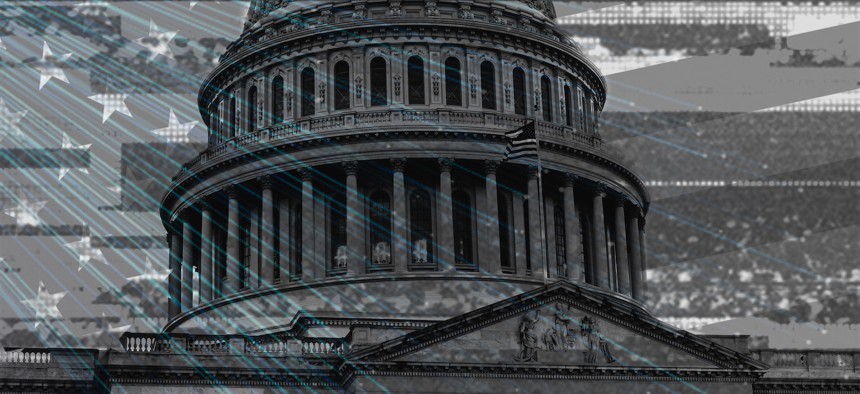AI regulation will come from existing frameworks — not a new agency — lawmakers say

Douglas Rissing/Getty Images
A single, overarching AI regulation package or a new AI regulatory agency is unlikely to emerge from Congress, members said.
Lawmakers at an industry event on Wednesday voiced support for tapping existing legal resources to regulate artificial intelligence.
Echoing recent comments on the subject of AI regulations by fellow House lawmakers, Reps. Zoe Logren, D-Calif., and Jay Obernolte, R-Calif., said during a Information Technology Industry Council event that the Congress’s regulatory approach will have to be flexible and won’t begin with a brand new agency, but will rather make use of existing offices.
“We're going to need to stand up federal resources to help our agencies regulate this space,” Obernolte said, adding that agencies that could leverage existing regulatory policies will need highly-trained workforces, a consensus on AI industry standards and sandboxes to test risk AI models — all fueled by steady funding.
“I'm not sure that they need a brand new agency,” he said, explaining that future legislative efforts will need to be flexible and predicting that AI regulatory legislation will probably result in multiple laws rather than one broad bill dictating blanket guidance in the coming years.
Lofgren agreed, saying that Congress is still working on coming to a conclusion on how best to establish AI oversight, but notably did not support the idea of tasking a single agency with regulating the industry.
“It's impossible for one agency to be an expert in every single thing,” Lofgren said, adding that a variety of House committees have been extremely active in holding hearings to develop a smart legislative approach to AI guidance.
She also said that the private sector will likely be driving how things like copyright and fake content created by generative AI tools are policed. Her comments follow tech conglomerate Meta’s announcement that its platforms will begin labeling AI-generated content.
“The chances are in the near term, other than what the science community is going to produce — which is not the big regulatory scheme that everyone is talking about — it's the private sector efforts in the near term that [are] going to be addressing these issues,” she said.






